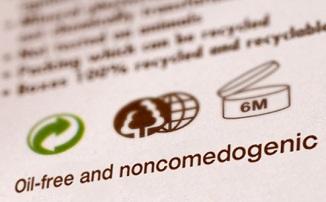

The stringent European cosmetic laws guarantee the safety and exclusion of any harmful chemicals.
S’N’B ‘s priority is not only the natural oriented cosmetics but also the premium quality of the raw materials. That is why Snails nail polish comply with the strictest European regulations.
Canadian cosmetics regulations, like European Union regulations, are much stricter than those in the United States.
Health Canada, the federal department responsible for helping Canadians maintain and improve their health, regularly reviews the safety of cosmetic ingredients and prohibits or restricts the use of ingredients that present health risks, according to their website. The Canadian government regularly updates a Cosmetic Ingredient Hotlist that includes hundreds of chemicals and contaminants prohibited and restricted from use in cosmetics such as formaldehyde, triclosan, selenium, nitrosamines and 1,4-dioxane — all of which are allowed in U.S. products.
In addition, cosmetic manufacturers, by law, are prohibited from selling cosmetics that contain ingredients that present a hazard to the health of Canadians; must disclose all cosmetic ingredients to Health Canada; and are required to register their products. Labeling requirements that went into effect in 2006 require ingredient lists to appear on all cosmetic product labels. Increased disclosure is making choosing safe products easier for Canadian consumers.
The European Union, now 28 countries strong, has more stringent and protective laws for cosmetics than the United States. The hazard-based, precautionary approach of the EU acknowledges that chemicals linked to cancer and birth defects simply don’t belong in cosmetics – regardless of the concentration of the chemical being used.
The United States has much to learn from the EU example. The EU Cosmetics Directive (76/768/EEC) was adopted in January 2003 and most recently revised in 2013. The EU law bans 1,328 chemicals from cosmetics that are known or suspected to cause cancer, genetic mutation, reproductive harm or birth defects. In comparison, the U.S. FDA has only banned or restricted 11 chemicals from cosmetics. Unlike the United States, EU law requires pre-market safety assessments of cosmetics, mandatory registration of cosmetic products, government authorization for the use of nanomaterials and prohibits animal testing for cosmetic purposes.






Jesuites Gracia Kostka School of Barcelona hosted Snails at the Ampakostka school event. A nail corner event colored the atmosphere

This is the spookier halloween pouch of the year! All you need are these amazing Halloween snails products that will take

Did you notice we changed our website recently? Lovely, isn’t it?
Something we haven’t changed is the super-safe and colourful formula of our Snails children’s nail polishes.
© Copyright 2018 S'N'B COMPANY.
Powered by GG Web Creations